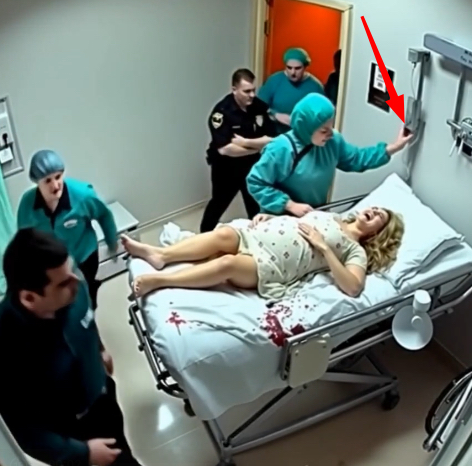 The baby shower had been a joyous occasion, a celebration of new life and burgeoning hope. Friends and family gathered to honor the impending arrival of my son, the air filled with laughter and excitement. When I announced his name, a wave of emotion swept through the room, uniting us in a shared anticipation of the future.
The baby shower had been a joyous occasion, a celebration of new life and burgeoning hope. Friends and family gathered to honor the impending arrival of my son, the air filled with laughter and excitement. When I announced his name, a wave of emotion swept through the room, uniting us in a shared anticipation of the future.
But that joy was short-lived. Two weeks later, my world unraveled. My sister-in-law, driven by motives I couldn’t comprehend, accused me of being obsessed with her child. It was a claim so outlandish, so unfounded, that I could hardly believe it. Yet, the nightmare continued to unfold, as my husband, under pressures I would later learn about, “confessed” to an elaborate scheme that existed only in the fevered imaginations of others.
The officers and social worker who arrived at our door seemed devoid of compassion, their eyes cold and judgmental. They spoke of custody and charges, of losing my baby the moment he drew his first breath. It was surreal, like a bad dream I couldn’t wake from.
In the hospital, the stakes transformed from emotional to physical. The sharp, stabbing pain that erupted within me was undeniable, a visceral indicator that something was catastrophically wrong. I felt the blood, warm and unrelenting, a terrifying confirmation of my fears. Yet, Officer Mills stood unmoved, his skepticism a barrier as substantial as the door he blocked. He dismissed my pleas with an indifferent wave, choosing to see deceit where there was none.
The medical staff, however, recognized the urgency of my condition. Dr. Blake’s arrival was like a beacon of hope amid the chaos. His declaration was stark and immediate: placental abruption. A term that sounded clinical yet held the weight of life and death within its syllables. His orders were clear, but Mills remained a looming obstacle, entrenched in bureaucratic rigidity.
As my vision blurred and the world began to slip away, a different battle unfolded in the periphery. The head nurse, an unsung hero amidst the turmoil, wielded her phone like a shield. Her actions were stealthy and deliberate, capturing not only the dereliction of duty by Officer Mills but also the hospital’s desperate fight to save us.
The recording became more than just evidence; it was a lifeline. It held the truth of that day, a testament to the indifference that nearly cost two lives. The nurse’s courage, her quiet defiance, ensured that Mills’ obstinance would not go unchecked. The recording would reveal the stark contrast between the medical team’s urgency and Mills’ callous disregard, forcing a reckoning that extended beyond the sterile walls of the hospital.
In the end, the battle wasn’t just for my life or my son’s; it was a fight for justice, for truth, for the right to be heard. As I lay on the operating table, the chaos of the room faded into a singular focus: survival. And while Mills’ voice droned on in the background, the nurse’s silent act of recording became a roaring testament that justice, though sometimes delayed, would not be denied.